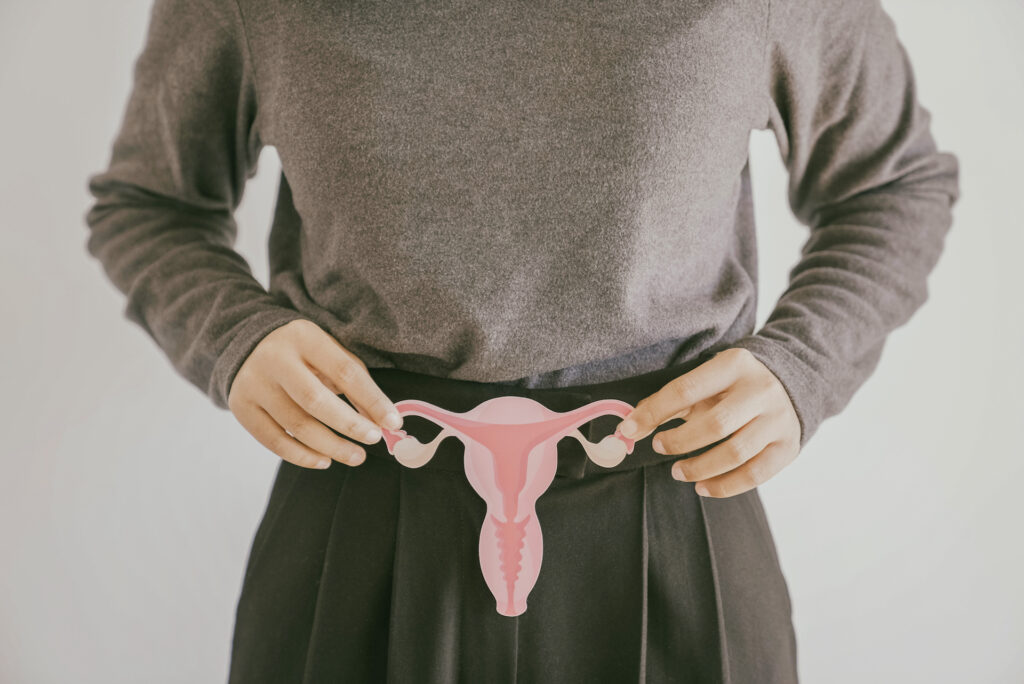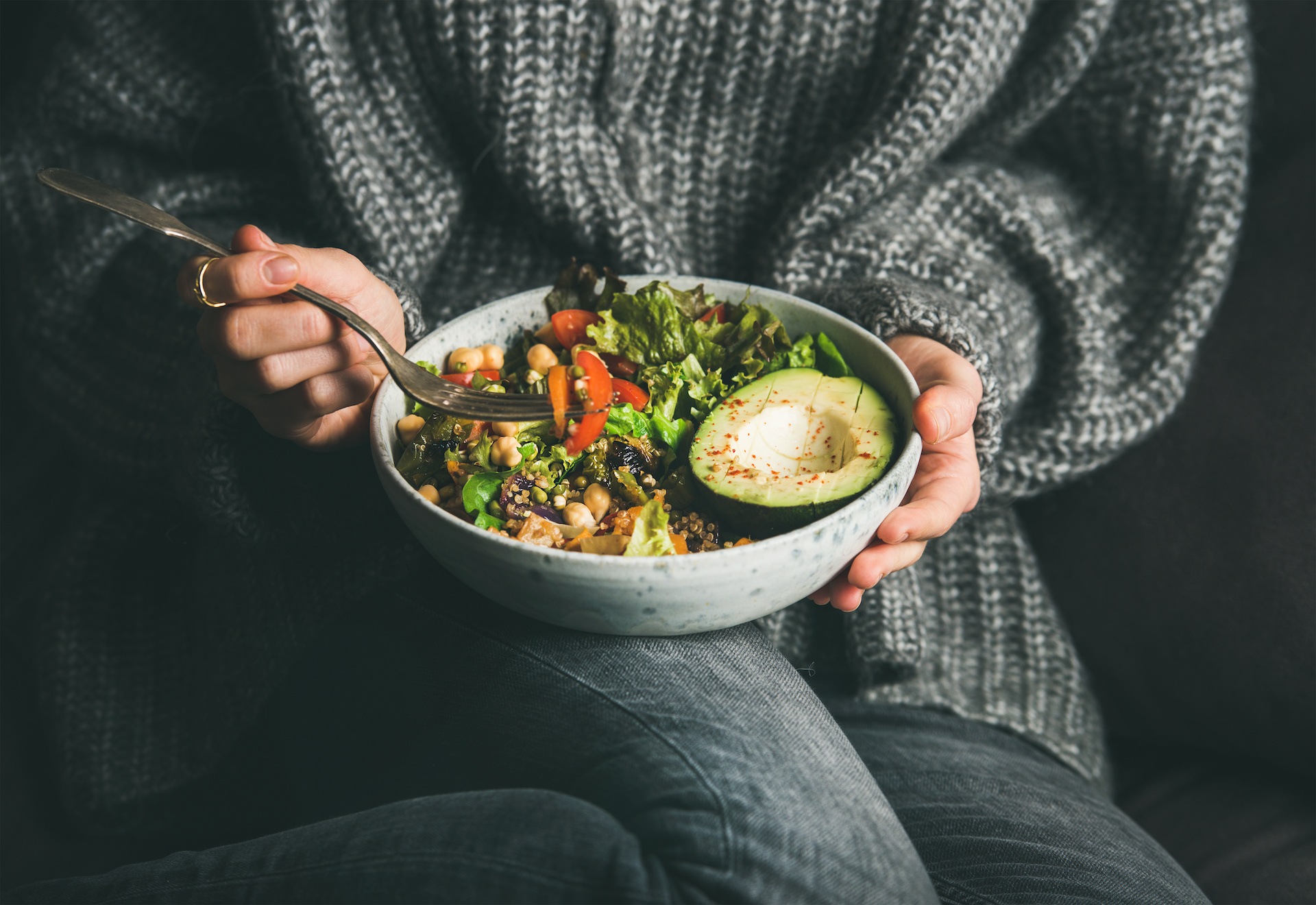As a hormone health specialist, I have worked with many women who have been told they simply need to lose weight, take the pill, or live with their Polycystic Ovary Syndrome (PCOS) symptoms. They are often handed a diagnosis without much explanation and very little support.
But PCOS is not just a reproductive hormone disorder. It is a full-body condition rooted in metabolic dysfunction, chronic inflammation, and nervous system dysregulation. PCOS alters how the body uses insulin, how the liver detoxifies hormones, how the gut microbiome behaves, and how inflammation is managed.
This means symptoms like irregular periods, acne, weight fluctuations, hair growth, fatigue, anxiety, and even digestive issues are not random. They are signals of systemic imbalance that can be influenced through nutrition, lifestyle, and consistent care.
How PCOS Affects the Body
PCOS involves a cascade of internal disruptions. Here is what we often see in clinical practice:
- Insulin resistance: Most people with PCOS have some level of insulin resistance, even if they are not overweight. This means cells do not respond well to insulin, leading to higher circulating insulin levels. High insulin drives testosterone production, disrupts ovulation, increases belly fat, and worsens inflammation.
- Androgen excess: Elevated androgens (like testosterone and DHEA) lead to symptoms like acne, hair growth on the face or body, scalp hair thinning, and missed periods. These levels are often amplified by insulin dysregulation.
- Low-grade inflammation: PCOS is considered an inflammatory condition. Inflammatory markers like CRP are often elevated, increasing the risk of cardiovascular disease, depression, and fatigue.
- Estrogen and progesterone imbalance: Irregular or absent ovulation leads to low progesterone and often estrogen dominance. This can cause mood swings, sore breasts, spotting, and heavy periods when they do occur.
- Disrupted gut microbiome: Emerging research shows the gut microbiome is altered in PCOS. This affects hormone detoxification, increases gut permeability (leaky gut), and worsens inflammation and insulin resistance.

Nutrient Depletion in PCOS
PCOS often comes with silent nutrient deficiencies. These are not always caught on basic bloodwork, but they play a major role in how the body regulates hormones, inflammation, and energy. Common nutrient depletions in PCOS include:
- Magnesium: Needed for blood sugar regulation, calming the nervous system, and reducing inflammation. Low magnesium worsens PMS, sleep, and cravings.
- Zinc: Supports ovulation, skin health, immune function, and testosterone balance. Deficiency contributes to acne and poor egg quality.
- Vitamin D: Crucial for insulin sensitivity, ovulation, and mood. Many women with PCOS are deficient, especially in northern climates.
- B vitamins (especially B6, B12, folate): Support methylation, detoxification, mood balance, and energy metabolism. They are easily depleted by the pill or stress.
- Omega-3 fatty acids: Reduce inflammation, support hormone production, and improve insulin sensitivity. A common deficiency in Western diets.
Can Nutrition Heal PCOS?
Nutrition cannot “cure” PCOS, but it can absolutely heal the drivers behind your symptoms. You cannot erase your genetics or fully remove the diagnosis, but you can create an internal environment where:
- Ovulation becomes more regular
- Androgen levels reduce
- Inflammation settles
- Gut health improves
- Energy, mood, and cycles stabilize
This is what we mean by “healing PCOS.” It is about managing the root causes, so your symptoms no longer define your life.

A Nutritional Framework to Support Healing
Here is how we begin that healing process through nutrition:
1. Stabilize blood sugar
- Eat every 3 to 4 hours to reduce cortisol and insulin surges
- Prioritize protein at every meal (chicken, eggs, lentils, tempeh, protein shakes)
- Include healthy fats and fibre with carbohydrates to prevent crashes
2. Reduce inflammation
- Use foods like wild salmon, ground flax, turmeric, ginger, olive oil, greens, and berries
- Limit ultra-processed foods, refined oils, and excess sugar
- Consider omega-3 supplementation where needed
3. Rebuild nutrient stores
- Focus on foods high in magnesium (pumpkin seeds, dark leafy greens, black beans)
- Add zinc-rich foods like pumpkin seeds, lentils, and eggs
- Include pasture-raised eggs, wild fish, leafy greens, and sunflower seeds for B vitamins
- Vitamin D from sunlight, eggs, and supplementation if needed
4. Support digestion and hormone detoxification
- Add cruciferous vegetables (lightly steamed broccoli, cauliflower, cabbage)
- Drink plenty of water and support fibre intake.
- Include fermented foods or gentle probiotics
- Avoid extreme diets or long periods of fasting, which disrupt hormones
Creating a Sustainable Healing Routine
Consistency is more important than intensity.
Start with one stabilizing meal a day. Add one colourful vegetable to your plate. Try an anti-inflammatory elixir in the evening. These small, intentional steps help restore rhythm to a system that has often felt unpredictable, heavy, or misunderstood.
PCOS is not a character flaw. It is a biological pattern we can work with, not against. Through food, movement, rest, and rhythm, you can gently rebalance the systems most affected: your insulin sensitivity, your inflammation response, and your nervous system.
You are not broken. Your body is intelligent, responsive, and capable of healing with the right inputs.

5 Nourishing Meals to Support PCOS
This sample shows how small, regular meals can support blood sugar balance, reduce inflammation, and gently rebuild nutrient stores throughout the day.
Meal 1: Morning Grounding Meal
Chia flax pudding with cinnamon and berries
Why it works: Stabilizes blood sugar, provides fibre for the gut, and delivers omega-3s and antioxidants to support inflammation and hormone balance.
- 3 tbsp chia seeds
- 1 tbsp ground flax
- ¾ cup unsweetened almond milk
- ½ tsp cinnamon
- A handful of fresh or frozen berries
Let it sit overnight or 20 minutes in the morning. Serve with a small scoop of protein powder or a side of scrambled egg if extra hunger is present.
Meal 2: Mid-Morning Blood Sugar Support
Hard-boiled egg with a few slices of avocado and sea salt
Why it works: Protein and fat to extend satiety, calm cortisol, and provide choline for hormone detox and liver function.
Meal 3: Midday Hormone Support Meal
Turkey and quinoa rainbow bowl
Why it works: A balanced plate with lean protein, complex carbs, colourful vegetables, and healthy fats. This supports blood sugar, inflammation, and nutrient repletion.
- Ground turkey sautéed with garlic and turmeric
- Quinoa base
- Steamed broccoli, roasted carrots, chopped spinach
- Drizzle of olive oil and fresh lemon
Meal 4: Afternoon Calm Snack
Pumpkin seeds, cucumber slices, and hummus
Why it works: Zinc from pumpkin seeds supports ovulation and skin, while cucumber and hummus add fibre and hydration.
Meal 5: Evening Rebuilding Meal
Salmon and roasted sweet potatoes with sautéed greens
Why it works: Omega-3s in salmon calm inflammation, support insulin sensitivity, and help regulate androgens. Sweet potato supports progesterone pathways, and magnesium-rich greens relax the nervous system.
Nutrition is not a punishment. It is a form of respect. A way to say: I am listening, and I am worthy of care.
At Georgia Straight Women’s Clinic and Sunshine Coast Health Centre, we believe a holistic approach to health is crucial for healing and growth. Nutrition is incorporated into our program to help clients achieve optimal mental and physical well-being. If you or someone you know is struggling with mental health and/or addiction, get in touch with us today to discuss your options.




